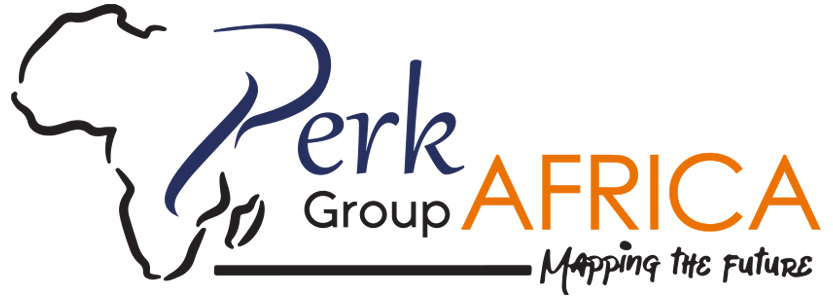
Training Course on Monitoring and Evaluation in Food Security and Nutrition
Course Overview
This course provides a comprehensive exploration of Monitoring and Evaluation (M&E) principles within the context of food security and nutrition programs. Participants will gain a solid foundation in M&E frameworks, tools, and techniques, equipping them with the skills needed to assess, improve, and sustain effective interventions in the field of food security and nutrition.
Course Objectives:
- Understand the fundamental concepts and importance of M&E in the context of food security and nutrition.
- Develop practical skills in designing and implementing M&E frameworks for food security and nutrition programs.
- Learn to select and use appropriate indicators for assessing key aspects of food security and nutrition.
- Acquire knowledge of various data collection methods and analytical techniques relevant to the field.
- Explore advanced evaluation approaches, including impact assessments and formative/sum
Target Participants
This course is designed for researchers, project staff, development practitioners, managers and decision makers who are responsible for project, program or organization-level M&E in Food Security and Nutrition programs.
Course Duration: 10 days
Course Outline
Module 1: Introduction to M&E
- Definition of Monitoring and Evaluation
- Why Monitoring and Evaluation is important
- Key principles and concepts in M&E
- M&E and the project lifecycle
- Complementary roles of Monitoring and Evaluation
Module 2: Food Security and Nutrition M&E Frameworks
- Food security and Nutrition Conceptual Frameworks
- Food security and Nutrition Results Frameworks
- Logical Framework Analysis (LFA)
- Design of Food security and nutrition projects using LogFrame
Module 3: Food Security and Nutrition Indicators
- FSN indicators definition: Dietary diversity score, Food Consumption Score, Coping Strategy Index, Nutrition indicators
- Indicator metrics
- Link between indicators to results
- Indicator Matrix
- FSN indicator performance tracking
Module 4: M&E System design and Planning in FSN
- Importance of an M&E Plan
- Documenting M&E System in the M&E Plan
- Components of an M&E Plan-Monitoring, Evaluation, Data management, Reporting
- Using M&E Plan to implement M&E in a Project
- M&E plan vs Performance Management Plan (PMP)
Module 5: M&E Considerations for Sector Specific Programming
- Food Security Programs: Food Availability, Seasonality, Food Access, Food Utilization
- Health and Nutrition Programs; Selection of Indicators, sources of data, Reproductive Health
- Integrating Cross Cutting Issues into Data Collection
Module 6: Data Management and Analysis for M&E in FSN
- Different sources of M&E data
- Qualitative data collection methods
- Quantitative data collection methods
- Participatory methods of data collection
- Qualitative data analysis
- Quantitative data analysis
- Data interpretation and reporting
Module 7: Gender integration in M&E for FSN
- Gender integration during project activities design
- Gender indicators in Food Security and Nutrition programs
- Cross cutting gender issues in FSN
- Measure of gender outcomes
- Role of M&E in addressing gender
- Measure pf gender outcomes
Module 8: Evaluation of Food Security and Nutrition Programs
- Determining evaluation points from results framework
- Components of evaluations: implementation and process evaluations.
- Evaluation designs- experimental, quasi-experimental and non-experimental
- Performance evaluation process
- Evaluation findings sharing and dissemination
Module 9: Impact Assessment of Food Security and Nutrition Programs
- Introduction to impact evaluation
- Attribution in impact evaluation
- Estimation of counterfactual
- Impact evaluation methods
Module 10: M&E Results Use and Dissemination
- Use of M&E results to improve and strengthen FSN projects
- Use of M&E Lessons learnt and Best Practices
- M&E reporting
Note: This outline provides a general structure for the training. The specific content, activities, and duration of each session may be adjusted based on the target audience, learning objectives, and available time.
Classroom Training Schedule
| Start Date | End Date | Location | Cost | Apply |
|---|---|---|---|---|
| Feb 02, 2026 | Feb 13, 2026 | Nairobi | $ 2000 | Register |
| Mar 09, 2026 | Mar 20, 2026 | Nairobi | $ 2000 | Register |
| Apr 13, 2026 | Apr 24, 2026 | Nairobi | $ 2000 | Register |
| May 18, 2026 | May 29, 2026 | Nairobi | $ 2000 | Register |
| Jun 22, 2026 | Jul 03, 2026 | Nairobi | $ 2000 | Register |
| Jul 27, 2026 | Aug 07, 2026 | Nairobi | $ 2000 | Register |
| Aug 31, 2026 | Sep 11, 2026 | Nairobi | $ 2000 | Register |
| Oct 05, 2026 | Oct 16, 2026 | Nairobi | $ 2000 | Register |
| Nov 09, 2026 | Nov 20, 2026 | Nairobi | $ 2000 | Register |
Virtual Training Schedule
| Start Date | End Date | Location | Cost | Apply | |||
|---|---|---|---|---|---|---|---|
| Jan 19, 2026 | Jan 30, 2026 | Online | $ 1000 | Register | |||
| Mar 23, 2026 | Apr 03, 2026 | Online | $ 1000 | Register | |||
| Mar 30, 2026 | Apr 10, 2026 | Online | $ 1000 | Register | |||
| May 04, 2026 | May 15, 2026 | Online | $ 1000 | Register | |||
| Jun 08, 2026 | Jun 19, 2026 | Online | $ 1000 | Register | |||
| Jul 13, 2026 | Jul 24, 2026 | Online | $ 1000 | Register | |||
| Aug 17, 2026 | Aug 28, 2026 | Online | $ 1000 | Register | |||
| Sep 21, 2026 | Oct 02, 2026 | Online | $ 1000 | Register | |||
| Oct 26, 2026 | Nov 06, 2026 | Online | $ 1000 | Register | |||
| Dec 07, 2026 | Dec 18, 2026 | Online | $ 1000 | Register |
Course Language
This Training course is offered in ENGLISH . Please indicate the language of choice during registration.
Course Delivery
Presentations are well guided, practical exercise, a plenary presentation, and group work. Participants are encouraged to bring any data relevant to their job responsibilities. This is hands-on, product-oriented training and will mostly involve practical exercises. Each participant MUST bring along their own working laptop and android phone.
Certification
Upon completion of training, the participant will be issued with a certificate of Completion.
Tailor-Made Course
3 months post-training support, consultation, and coaching is a guarantee from us and will be available after the course.We can also do this as a tailor-made course to meet organization-wide needs. Contact us to find out more: training@perk-gafrica.com.
